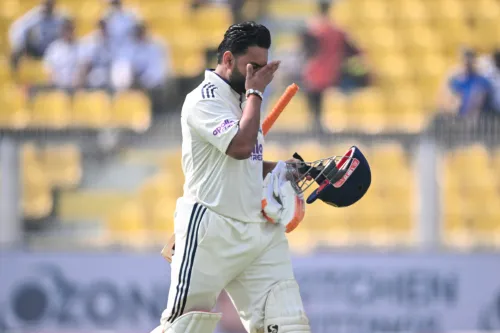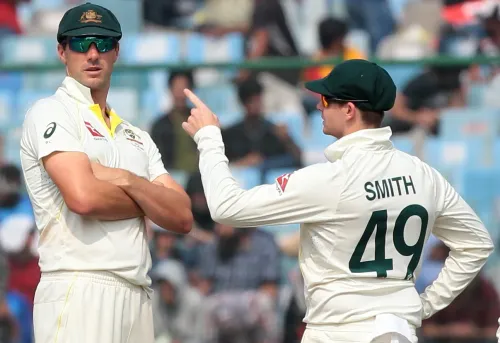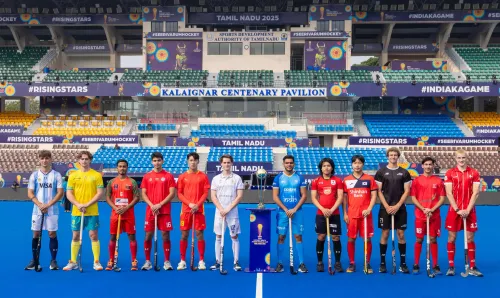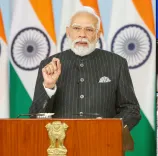Champions Trophy: Pakistan's Match-Winners and Major Hurdles (SWOT Analysis)
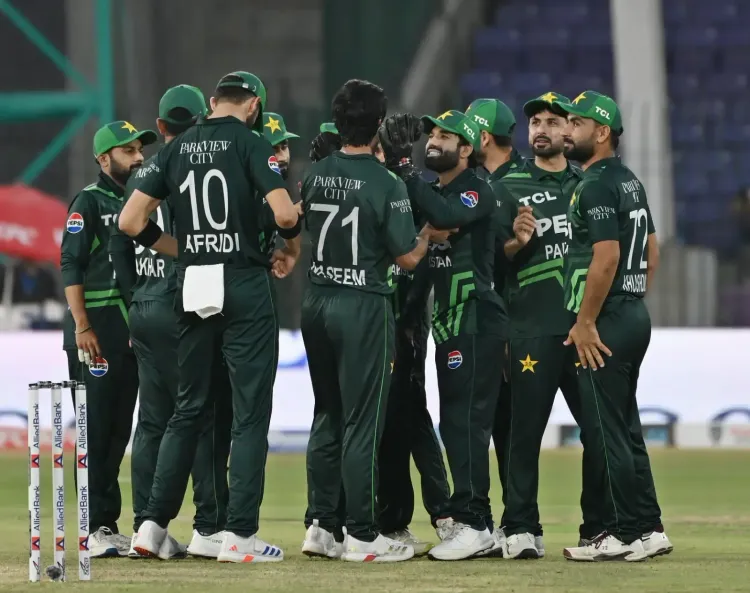
Synopsis
Key Takeaways
- Strengths: Talented game-changers in the squad.
- Weaknesses: Unstable opening partnership and squad imbalance.
- Opportunities: Hosting ICC events can boost Pakistan's sporting reputation.
- Threats: Performance pressure could lead to unexpected outcomes.
New Delhi, Feb 16 (NationPress) The 2025 ICC Champions Trophy is fast approaching, with each team eager to start strong as the eight-team tournament kicks off on February 19. One of the teams that will attract significant attention is the host nation, Pakistan, led by captain Mohammad Rizwan.
Entering the tournament as the defending champions, having claimed victory in the last edition in 2017 in England, the question remains: Do they have what it takes to be strong contenders for the title? Here’s a SWOT analysis by IANS of the Pakistan team gearing up to commence their campaign against New Zealand.
Strength: Pakistan boasts players capable of turning the tide on any given day. Fakhar Zaman, who has returned to the ODI team post the 2023 World Cup, can dramatically alter the game's outcome. If Babar Azam finds his form, Pakistan will be optimistic about achieving a substantial total.
Captain Mohammad Rizwan, along with Saud Shakeel and Salman Ali Agha, are in excellent form, which bodes well for the team. Their formidable pace attack, featuring Shaheen Shah Afridi, Naseem Shah, Haris Rauf (if fit), and Mohammad Hasnain, adds both reliability and a winning edge.
Weakness: With Saim Ayub sidelined due to an ankle injury and Abdullah Shafique dropped due to inconsistent performance, Pakistan's opening partnership of Fakhar and Babar is relatively untested. This combination could be a weak link during the crucial opening overs.
Furthermore, the decision to select only one specialist spinner, Abrar Ahmed, who has a history of injuries, has raised eyebrows. The absence of Sufiyan Muqeem and Shadab Khan indicates a slight imbalance in the squad. The lower order comprising Tayyab Tahir, Faheem Ashraf, and Khushdil Shah poses another challenge, as they have yet to make a significant impact at the international level.
Opportunity: The last time Pakistan hosted a multi-nation cricket tournament was during the 1996 World Cup, which included the final at Lahore's Gaddafi Stadium. After 29 years, Pakistan is set to host the ICC Champions Trophy once again.
Pakistan will host 11 out of 15 matches across three renovated venues in Lahore, Karachi, and Rawalpindi, marking a significant achievement for a nation that has struggled to host major sporting events due to safety concerns, particularly following the March 2009 attack on the Sri Lankan Test team.
If Pakistan can excel in both on-field performance and off-field activities during the Champions Trophy, it could open doors for more sporting events in a country grappling with economic and political challenges.
Threat: As hosts of the Champions Trophy, Pakistan's performances will be under intense scrutiny from fans domestically and internationally. While some teams thrive under such pressure, others may falter, leading to an early exit. Pakistan's unpredictable nature adds to this concern, making their performance a significant threat.

